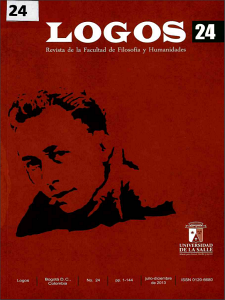Abstract
The paper presents a reflection on the second order layer of social life from a phenomenological perspective. In particular, Edmund Husserl’s idea of personalities of a higher order is considered, as well as its critical reception by Alfred Schutz. The paper starts by presenting the way in which Schutz presents and criticizes the Husserlian conception of personalities of a higher order, in the broader context of a general rejection of collectivist conceptions of that which is social. Based on the above, some Husserl texts are used that could not be taken into account by Schutz to show that it is possible, within the limits of his criticism, to establish a precise and phenomenologically acceptable meaning of the conception of personalities of higher order.Downloads
Download data is not yet available.



